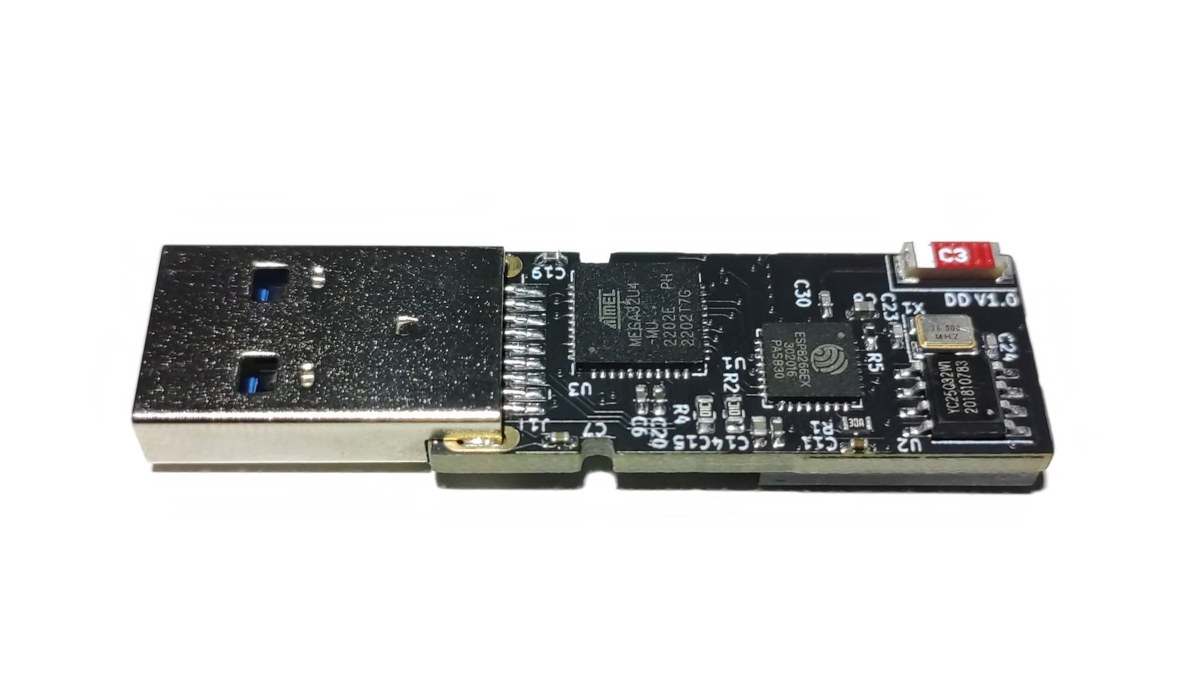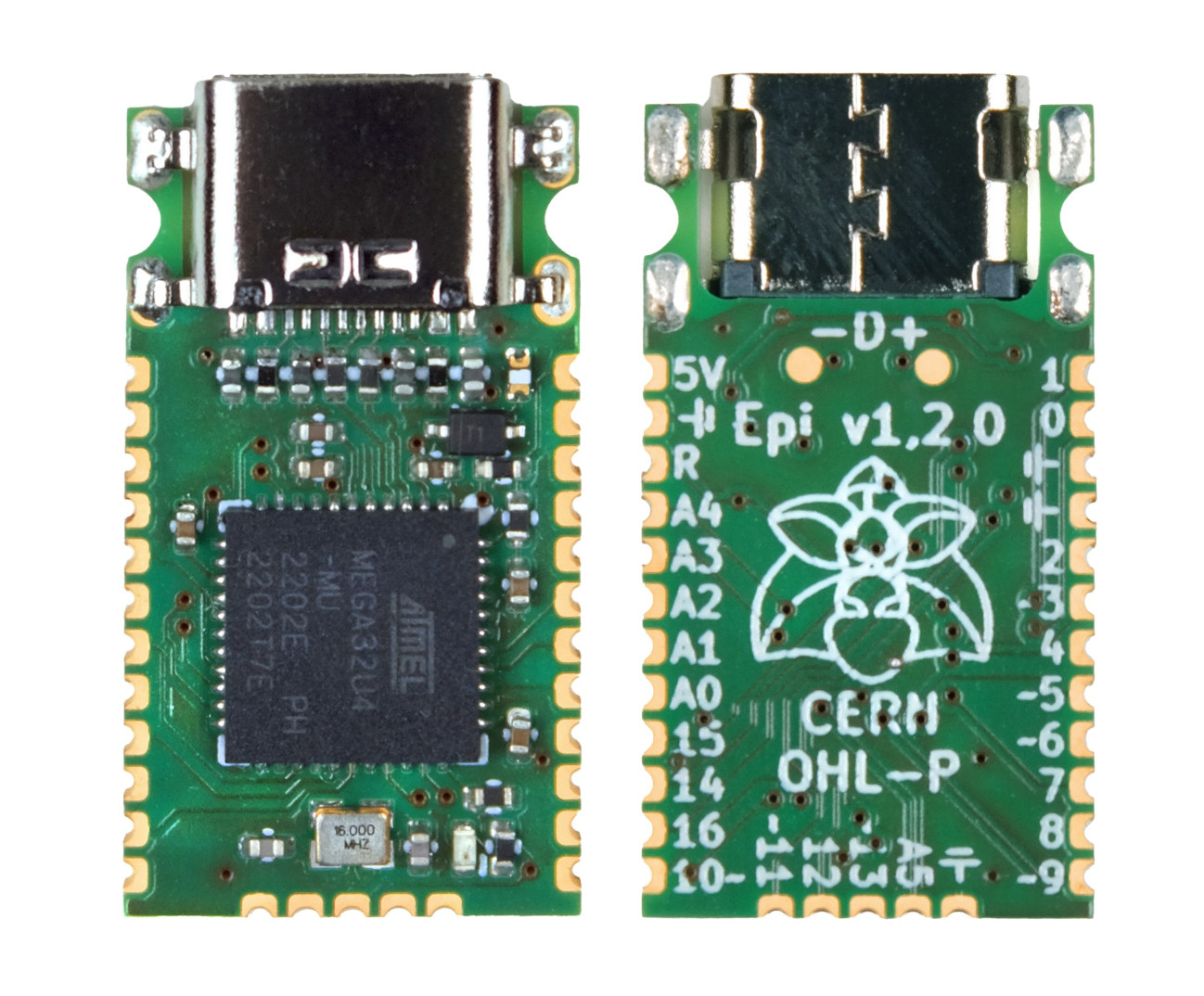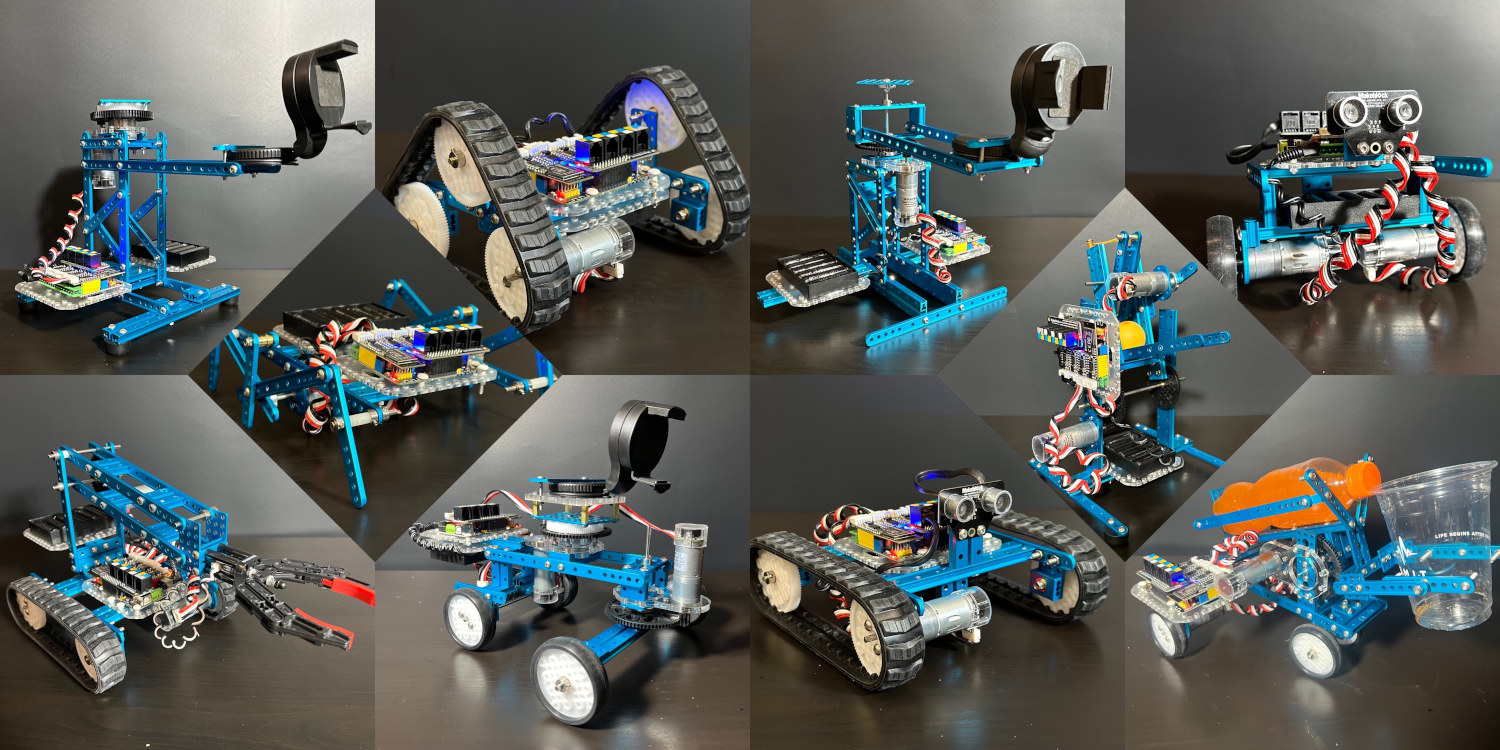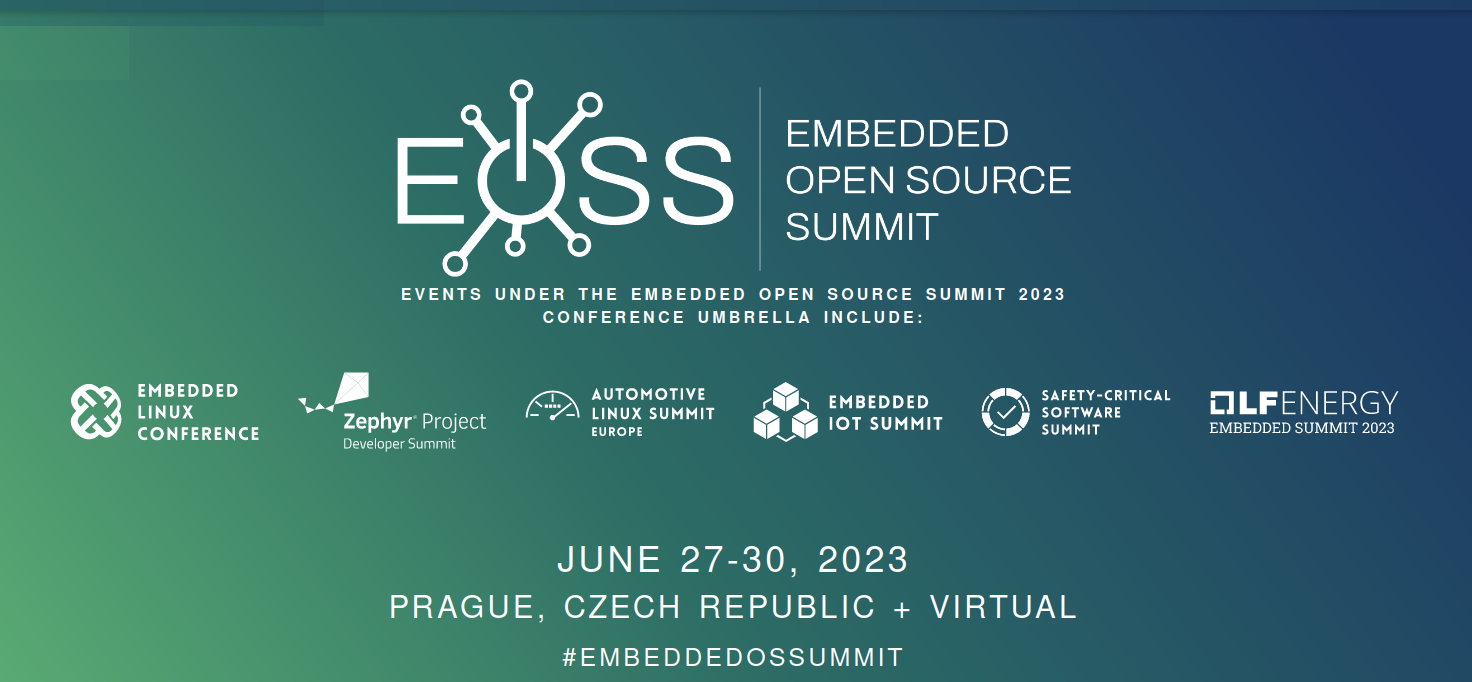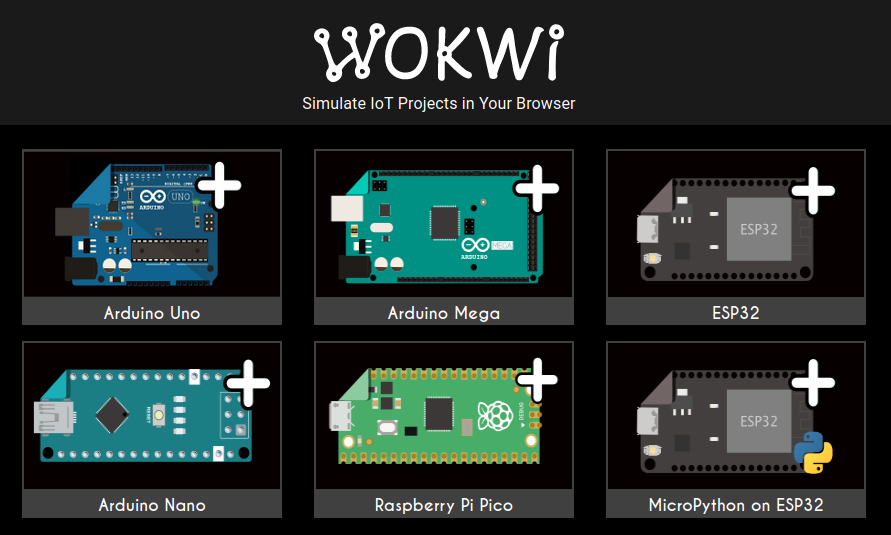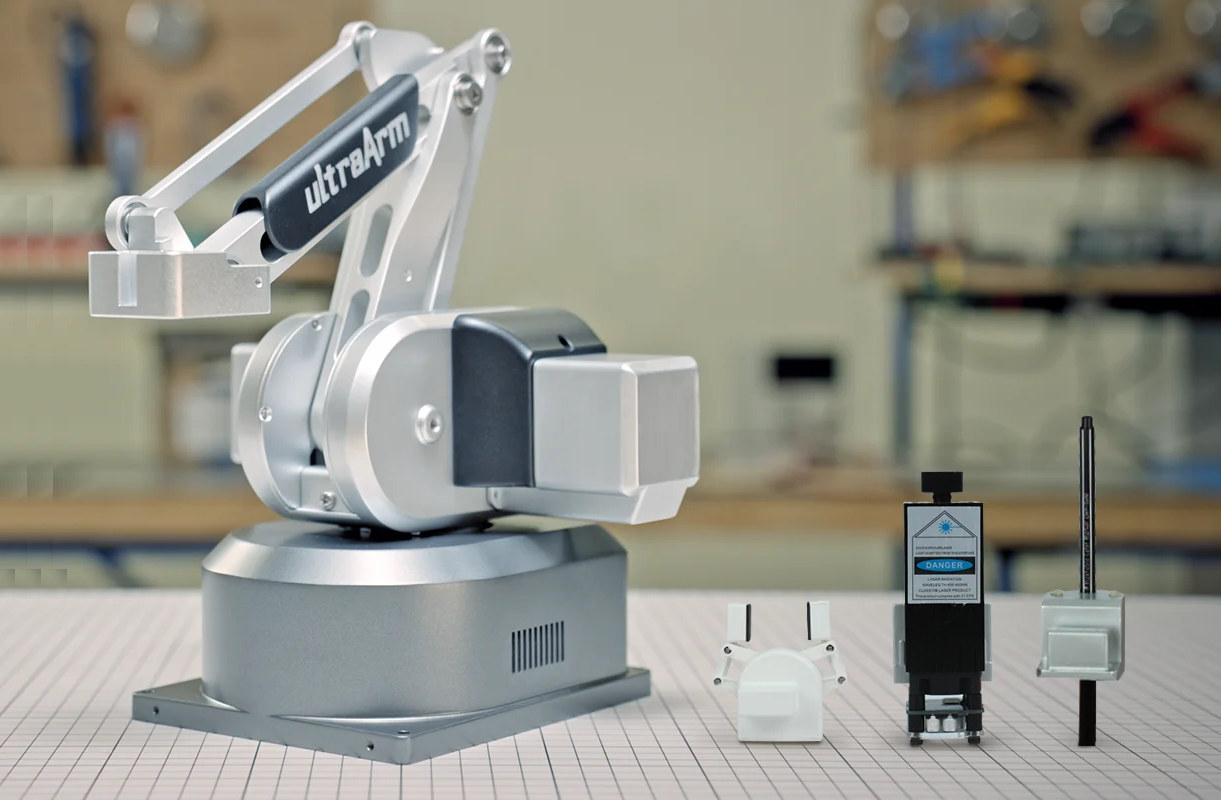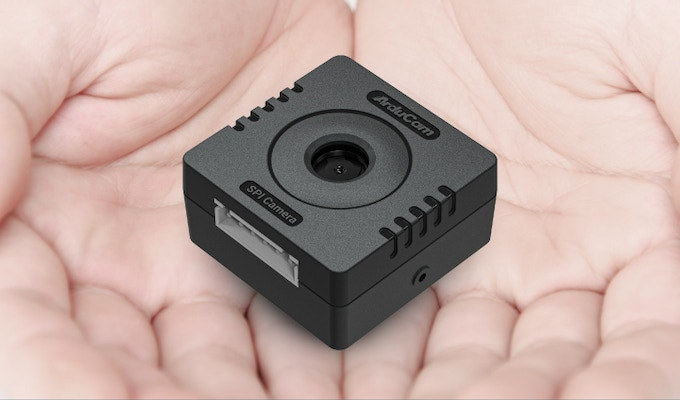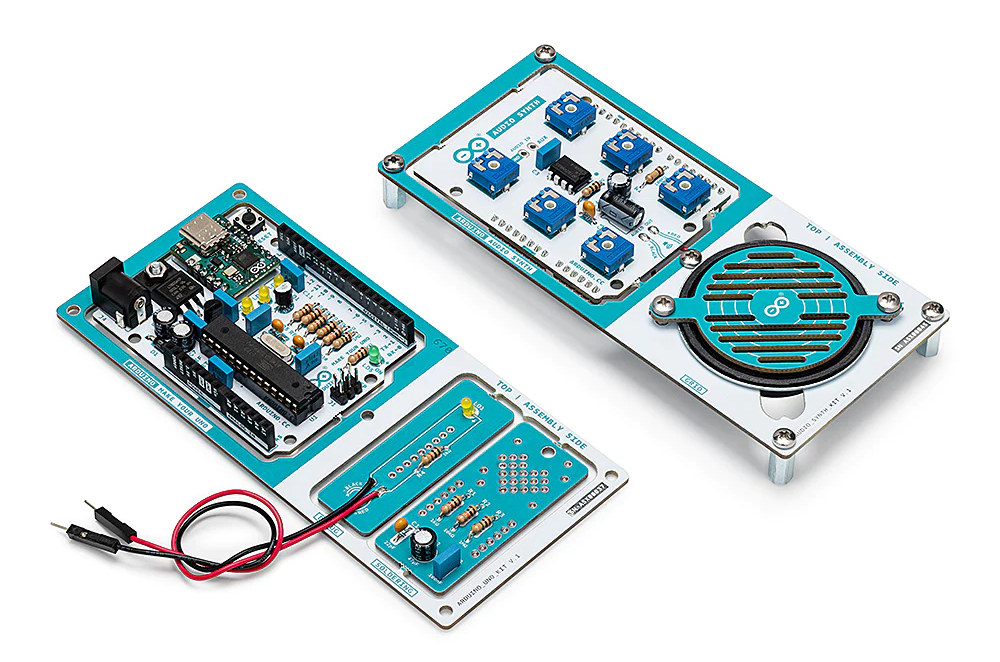Diabolic Drive may look like a 64GB USB flash drive and show as such when you insert it into your computer, but it’s actually a wireless keystroke injection tool with a Microchip ATmega32U4 8-bit AVR microcontroller and an Espressif Systems ESP8266 WiFi SoC. Egypt-based UNIT 72784 says their cyber security tool enables Red Teaming – the practice of rigorously identifying an attack path to breach a device’s security – as it behaves like a flash drive while being able to deploy keyboard strokes wirelessly through the ESP8266 WiFi MCU. Diabolic Drive specifications: MCUs Microchip ATmega32U4 microcontroller @ 16 MHz (5V) acting as a Serial Bridge Espressif Systems ESP8266EX microcontroller @ 160 MHZ (3.3V) with WiFi 4 support ATmega32U4 and ESP8266 are connected via Serial and I2C protocols thanks to an LDO regulator. Storage 64 GB flash storage up to 20MB/s read, 10MB/s write 4MB W25Q32 SPI flash memory o Antenna […]
Epi 32U4 – An Arduino-compatible USB-C development board with ATmega32U4 MCU (Crowdfunding)
Epi 32U4 is a tiny Arduino-compatible development board based on a Microchip ATmega32U4 8-bit AVR microcontroller with just a USB-Type-C port and 23 I/O pins accessible through castellated holes that can be soldered to headers or another PCB. The board also includes some protection such as a fuse, ESD protection, a ferrite bead, and a low-pass filter for the analog reference voltage. Ping Hobbyelektronik, the developer, says it’s especially useful for compact USB keyboards, but it also has more I/O ports than a standard Pro Micro board, so it’s appropriate for a range of other projects as well. Epi 32U4 board specifications: MCU – Microchip ATmega32U4 8-bit AVR microcontroller @ 8MHz or 16 MHz with 32 KB flash, 2.5 KB SRAM, 1 KB EEPROM USB 1x USB Type-C port for power and programming USB D+ and D- lines are broken out ESD and surge protection on USB data lines and […]
Makeblock Ultimate 2.0 review – A multi-function 10-in-1 educational robot kit
Makeblock Ultimate 2.0 is an educational robot kit that can be used to easily create up to 10 different types of robots. An Arduino-compatible Mega 2560 MCU board serves as the main controller and there are over 550 mechanical parts and electronic modules. The robot can drive up to 4 encoder and stepping motors, control up to 10 servo motors to work simultaneously, and can also be connected to Arduino and Raspberry Pi boards for more complex projects. The review/tutorial is fairly long, so if you are short on time, you can jump to different sections by clicking on some of the links below: MegaPi control board and main modules description mBlock 5 visual-programming IDE installation Programming of DC Encoder motors, Ultrasonic sensor, Line follower module, motion sensor, RJ25 adapter, and shutter module mBlock mobile app Building the ten models for the Makeblock Ultimate 2.0 robot kit (as shown in […]
Embedded Open Source Summit 2023 schedule – Zephyr OS, Security, IoT, Embedded Linux, and more
The Linux Foundation has just announced the full schedule for the Embedded Open Source Summit, which will take place on June 27-30, 2023 in Prague, Czech Republic, as well as virtually starting on June 26. Over 175 sessions, birds of a feather (BoF) tracks, and workshops related to embedded and open-source innovation will be presented at the event itself comprised of six micro conferences: Automotive Linux Summit Europe, Embedded IoT Summit, Embedded Linux Conference, LF Energy Embedded Summit, Safety-Critical Software Summit, and Zephyr Project Developer Summit. Even though I’m not going to attend personally, I’ve gone through the schedule to create my own little virtual schedule with some sessions relevant that should be interesting to me and hopefully to CNX Software readers. Monday, June 26 (Virtual sessions) The first day of the event will have a Yocto Dev training in the morning, and a bunch of virtual sessions that are […]
Wokwi – An Arduino, Raspberry Pi Pico, and ESP32 board simulator
Wokwi is an online simulator for Arduino, Raspberry Pi Pico, and ESP32 boards, or even your own custom microcontroller board designed to learn programming without the actual hardware. My girlfriend’s daughter has just attended a free 5-day online course about AI, IoT, ESP32, MicroPython, and more organized by King Mongkut’s Institute of Technology Ladkrabang (KMITL) and IMAKE Innovation, a STEM education company in Thailand. I was told they had some homework for ESP32 as part of the course, so I asked her whether she wanted an ESP32 board. But she said no need. So then I asked how to program the ESP32 without the board, or do they have a simulator? And indeed I was sent the screenshot below along with a blurry video showing the LED display updated as the program runs in the web browser. Considering ESP32 boards are so cheap and external modules or a breadboard are […]
ultraArm P340 Arduino-based robotic arm draws, engraves, and grabs
Elephant Robotics ultraArm P340 is a robot arm with an Arduino-compatible ATMega2560 control board with a 340mm working radius whose arm can be attached with different accessories for drawing, laser engraving, and grabbing objects. We’ve previously written and reviewed the myCobot 280 Pi robotic arm with a built-in Raspberry Pi 4 SBC, but the lower-cost ultraArm P340 works a little differently since it only contains the electronics for controlling the servos and attachments, and needs to be connected to a host computer running Windows or a Raspberry Pi over USB. ultraArm P340 specifications: Control board based on Microchip ATMega2560 8-bit AVR microcontroller @ 16MHz with 256KB flash, 4Kb EEPROM, 8KB SRAM DOF – 3 to 4 axis depending on accessories Working radius – 340mm Positioning Accuracy – ±0.1 mm Payload – Up to 650 grams High-performance stepper motor Maximum speed – 100mm/s Communication interfaces – RS485 and USB serial Attachment […]
ArduCam Mega – A 3MP or 5MP SPI camera for microcontrollers (Crowdfunding)
ArduCam Mega is a 3MP or 5MP camera specifically designed for microcontrollers with an SPI interface, and the SDK currently supports Arduino UNO and Mega2560 boards, ESP32/ESP8266 boards, Raspberry Pi Pico and other boards based on RP2040 MCU, BBC Micro:bit V2, as well as STM32 and MSP430 platform. Both cameras share many of the same specifications including their size, but the 3MP model is a fixed-focus camera, while the 5MP variant supports autofocus. Potential applications include assets monitoring, wildfire monitoring, remote meter reading, TinyML applications, and so on. ArduCam Mega specifications: Camera Type 3MP with fixed focus 5MP with auto-focus from 8cm to infinity Optical size – 1/4-inch Shutter type – Rolling Focal ratio 3MP – F2.8 5MP – F2.0 Still Resolutions 320×240, 640×480, 1280×720 x 1600 x1200x 1920 x 1080 3MP – 2048 x 1536 5MP – 2592×1944 Output formats – RGB, YUV, or JPEG Wake-up time 3MP – […]
Learn soldering and programming with the Arduino Make Your UNO Kit
Arduino Make Your UNO Kit is a kit with two boards, one for the microcontroller and the other for audio, and all components required that can be used to learn how to solder and then Arduino programming. Once soldering and assembly are complete you’ll hopefully get a working Arduino UNO and an audio synthesizer shield. But before you get there, you’ll need to equip yourself with a soldering iron and some soldering tin to solder the components below to the two PCBs. Package content: Arduino Make Your UNO board’s components Make Your UNO PCB Socket for ATMega328p MCU Microchip ATmega328p 8-bit AVR microcontroller USB Type-C serial adapter board Various 1k Ohm, 10k Ohm. and 1M Ohm resistors 3x Ceramic capacitors (22pF) 3x Electrolytic capacitors (47uF) 7x Polyester capacitors (100nF) 1x 1N4007 diode 1x 16MHz crystal 4x Yellow LEDs, 1x Green LED 1x Push-Button 1x MOSFET 2x I/O connectors 6-pin header […]


